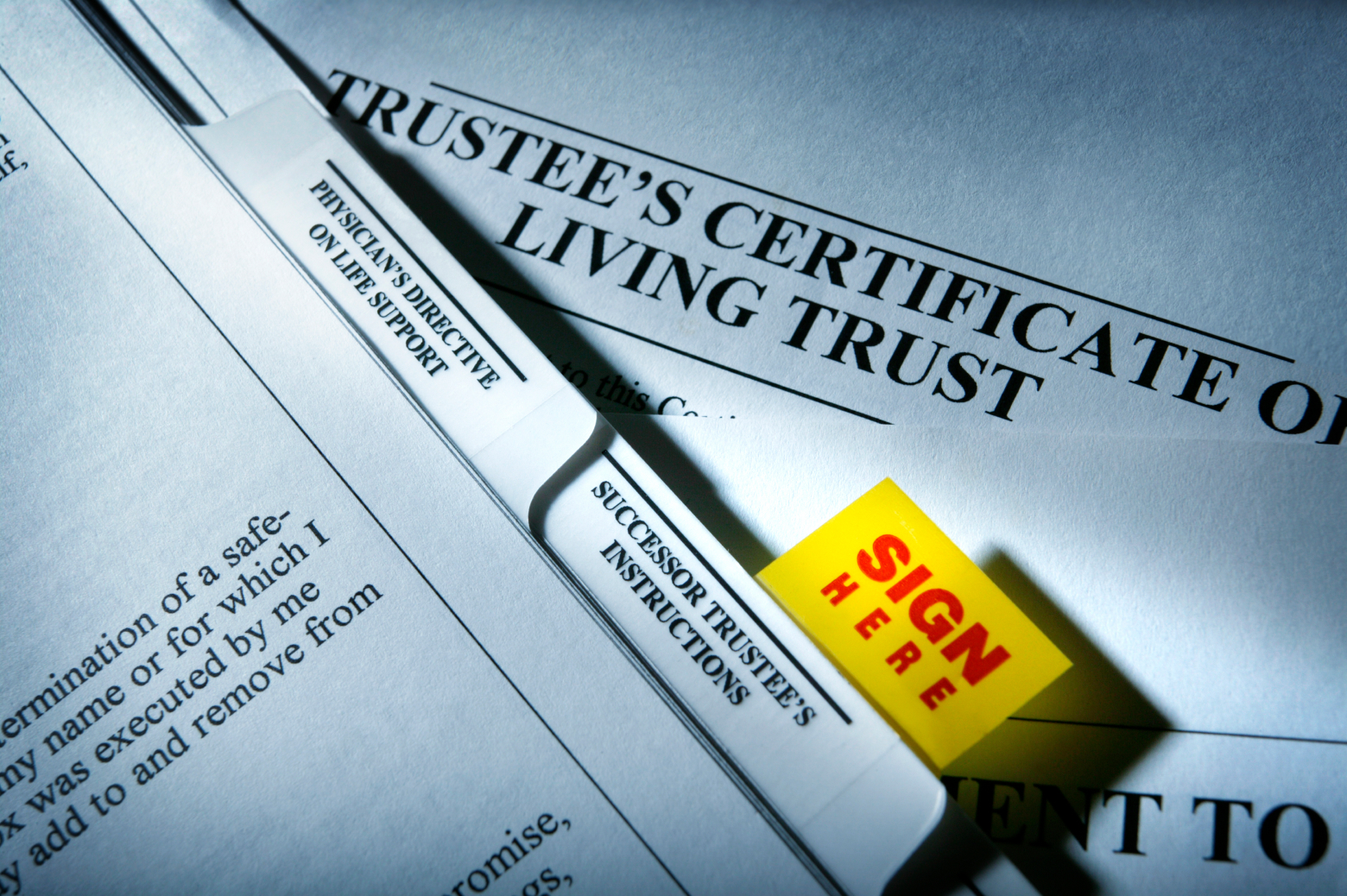The term “estate planning” means different things to different people. Some may associate the term with high-net-worth families who own multiple properties and assets. Others tend to lump the concept together with retirement.
Many people also assume estate planning is synonymous with writing a will. To an extent, they’re not wrong… but a last will and testament is only the tip of the iceberg in the world of important estate planning documents and strategies. In fact, as you learn more about your own estate planning needs, you may find that a will is just about the least important document in your arsenal.
Part of the reason for this misconception is that while most people know they’re supposed to have a will when they die, they don’t quite understand what it does — and more importantly, what it doesn’t do. Let's take a closer look at what a will is, what it does, and what other documents to consider incorporating into your estate plan.
How does a will work?
Let’s make one thing clear: Everyone should have a will, no matter their age or net worth. It tends to be the starting point for most peoples’ estate planning journeys, and it serves some basic but important purposes.
It will let others know:
- How you want your assets distributed
- Who should serve as the executor of your estate
- Who you’d like to be named legal guardian of your pets or minor children
And that’s it! A will doesn’t help with estate tax planning strategies, or address any other estate planning challenges.
After you die, your will goes to probate, where it’s reviewed by a judge. If the judge is satisfied and there are no disputes, they will authorize your executor (the person in charge of handling your estate) to distribute your assets as instructed.
What happens if someone dies without a will?
So now the question becomes, what happens if you die without a will? The simple answer is, you lose all control over who receives your assets after death.
Passing away without a will means “dying intestate.” Rather than have your will determine who receives what assets, the fate of your estate is left to local courts and your state’s intestacy laws.
Generally speaking, the courts will distribute your assets to a spouse, children, and parents.
While the courts may distribute assets similarly to how you would, that’s not always the case — especially if you have complicated family dynamics.
Say you and your spouse have been separated for years but never finalized your divorce. The courts may still choose to give your estate to an estranged spouse, even if you would have preferred it to go to your parents or siblings.
This is why establishing a will is so important: it puts you in control of how your estate is divided.
Is a will the most important part of an estate plan?
Wills are a great starting point for estate planning. There's a reason why so much emphasis is placed on them.
Relative to your entire estate plan, however, you may be surprised to learn that they’re limited in power. In fact, other parts of your estate plan can even override your will (more on this in a minute).
So while yes, it’s important to have a will, it’s even more important to continue rounding out your estate plan with other essential legal documents. Doing this enables you to better protect your assets from falling into the wrong hands, or ending up in a lengthy legal battle.
5 other documents to include in your estate plan (no matter your age)
The larger your net worth, the more legally complex your estate plan will become. However, there are a few basic documents that almost everyone should look into adding to their estate plan. You may find it helpful to talk through this list with an estate planning attorney, and they can help draft up the appropriate documents for your specific situation.
Also, a quick reminder before we dive in—estate planning is about more than death. It can also help plan for scenarios in which you become incapacitated or otherwise lose the ability to communicate or make decisions on your own. You’ll see this aspect of estate planning incorporated into some of the documents below.
1. Beneficiary designations
While there is no one official beneficiary designation document, acquiring these designations across your various accounts and policies is critical. A beneficiary designation indicates who you’d like to receive an account or insurance policy payout after death.
For example, when you first onboarded at work and signed up for a 401(k), you were likely required to provide the name of a beneficiary.
It’s important to regularly review and adjust these designations as your life circumstances evolve (if you experience a divorce, for example), since beneficiary designations are legally binding. They will override whatever’s written in your will — which means that even if you update your will to reflect your latest wishes, you'll need to update your beneficiary designations.
Common accounts or policies that can include beneficiary designations include:
- 401(k)s
- IRAs
- Roth accounts
- Brokerage accounts
- Checking and savings accounts
- Certificates of deposit (CDs)
- Life insurance
- Annuities
2. Advance healthcare directive
If you were in a car crash tomorrow, would your loved ones know what sort of care you’d like to receive? How about the type of care you wouldn’t want to receive? And who would you want to make decisions on your behalf?
An advance healthcare directive gives you a voice even when you’re unable to communicate for yourself. Within this directive, you can name a healthcare proxy. Your proxy will be legally allowed to make medical decisions on your behalf when you’re incapacitated.
In addition, you’ll want to create a living will. This document details your preferred care and treatment in various scenarios. Your proxy can refer to this document to ensure their decisions are aligned with yours. It can include a list of medications you’re allergic to, certain treatment practices you’re against, and what sort of measures to be taken to keep you alive.
If you’re thinking about skipping this one, don’t. You might trust your spouse implicitly to make medical decisions for you, and you might feel as though you don’t need to go through the trouble of making it official. But put yourself in their shoes, and consider just how stressful that scenario will be for them. Help them feel more assured in their decisions by giving them the exact directions they need to feel confident they’re doing the right thing.
3. Durable power of attorney
Similar to a healthcare proxy, establishing power of attorney gives another person the legal power to make decisions on your behalf. Normally, power of attorney ceases once a person becomes incapacitated, but durable power of attorney does not — which makes it a more ideal option for estate planning purposes.
You have the ability to limit power of attorney to certain areas of your life. This is helpful, for example, if you’d prefer someone to only make business-related decisions versus personal or financial decisions.
If you’re thinking about establishing power of attorney, be sure to select an individual you trust completely. Once official, they will have the ability to do just about anything you could do (within their specific area of control) — like sell your home, sign checks, or buy stocks.
4. Trusts
A trust is a common and useful estate planning tool that can be used to reduce potential estate tax liability, protect assets from creditors, incorporate stipulations into the transfer process, donate to charity, and more.
Generally speaking, putting assets into a trust essentially separates those assets from your estate. The assets or property are then owned and managed by the trust. As the creator (grantor), you have control over how you’d like your heirs (beneficiaries) to receive the assets in the trust after your passing. Some people choose to distribute a percentage of the funds at various milestones (such as college graduation, a wedding, when they turn 30, etc.).
Another notable benefit is that the assets held in a trust do not go through the probate process once the grantor dies. Because probate can be very public, lengthy, and expensive, some people find this to be a big advantage.
Trusts are legally complex entities, and they require the assistance of an attorney to establish and manage. However, depending on your needs, they could serve a purpose within your estate plan.
5. Instructions
Consider this your final catch-all document for anything you want your surviving loved ones to know. Many people will provide guidance on their funeral or how they'd like to be buried, share caretaking instructions for the home or pets, provide login information to online accounts, etc. Some attorneys will call this a “letter of intent” as well. Either way, it is not typically a legally binding or court-recognized document, but it is a good place to provide more context to your final wishes or share some additional information that could be useful during the transfer process.
If you do create a letter of intent, you may want to store it with your will or give it to your attorney for safekeeping.
Where there’s a will, there’s a way
No matter what stage of life you’re in, now’s the time to buckle down and think about what’s missing from your estate plan. Start with creating or updating your will (if it’s been a few years), and work with your attorney to build out the rest of your estate plan. Not only is it the greatest gift you can leave your loved ones, but it can help amplify your voice at a time when you’re unable to speak.

Like what you're reading?
Join the thousands of readers getting stories like this delivered straight to their inbox every Thursday — for free. Give it a spin, enter your email to sign up.
Related Articles

How to Ensure You (Or Your Spouse) Can Manage the Family's Finances on Your Own
Does one person in your house handle your family’s finances more so than the other? It’s not...

Is This Your Year to Try Tax-Loss Harvesting?
Nobody wants to pay more in taxes than they have to, so any time a tax-conscious investing strategy...

The Importance of Planning and Investing in Your 60s
While you’ve been (hopefully) saving for retirement for decades, your 60s are when retirement...
